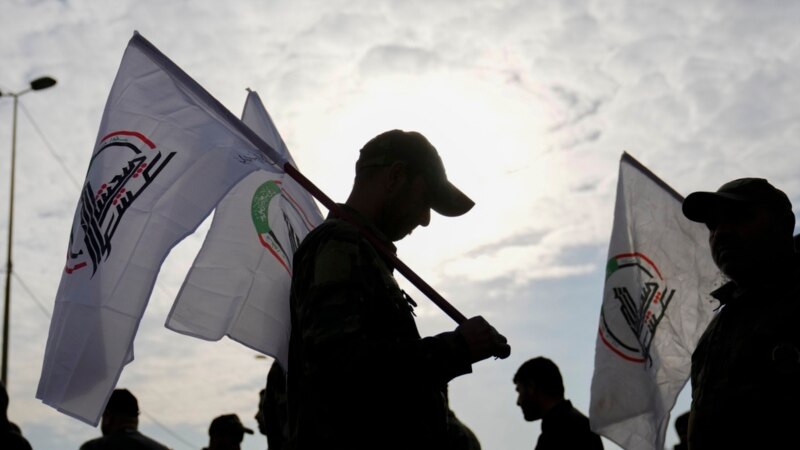
Iran-backed militias in Syria are again targeting the United States and its allies, launching at least three attacks on American positions following a U.S. bombardment aimed at disrupting the ability of the militias to pose a threat.
U.S. military officials told VOA the most recent attack came early Monday, when a single rocket was lobbed at U.S. and coalition forces at the Mission Support Site Euphrates base in eastern Syria.
The official said there were no injuries or damage as a result of the attack.
But an earlier attack, targeting the U.S.-backed Syrian Democratic Forces on Sunday, did hit its mark. The official said a one-way attack drone hit the base at the Omar Oil Field, near Deir el-Zour, causing multiple SDF casualties.
SDF spokesman Farhad Shami said on social media that the drone attack killed six SDF fighters.
The SDF base is located near the U.S. position known as Green Village.
The U.S. also confirmed an attack by Iran-backed militias on Friday, when multiple rockets targeted Mission Support Site Euphrates base. No injuries or damage were reported.
The three latest attacks are the first since the U.S. unleashed a series of airstrikes that hit 85 targets at seven locations in Iraq and Syria late Friday, dropping more than 125 precision munitions in about half-an-hour.
U.S. officials have said Friday’s strikes were aimed at disrupting the militia’s logistical capabilities by striking targets “critical to their supply chain,” including command-and-control centers, drone and missile storage sites, and other key facilities.
Washington has also warned more strikes are coming.
U.S. President Joe Biden “will do what he thinks needs to be done,” White House national security adviser Jake Sullivan told CNN’s “State of the Union” Sunday, refusing to rule out strikes inside Iran itself.
“There will be additional action that we will take — all designed to put an end to these attacks,” White House National Security Council spokesperson, John Kirby, told reporters following Friday’s strikes.
Iranian officials have condemned the U.S. strikes, calling them a violation of Syrian and Iraqi sovereignty. Iranian Foreign Ministry spokesperson Nasser Kanaani further described the U.S. strikes as “a serious strategic mistake.”
U.S. officials, so far, have declined to share estimates on how many militias members were killed in Friday’s strikes, but Syrian opposition activists said at least 29 fighters were killed in Syria while Iraqi officials said at least 16 militia members were killed with another 36 wounded.
The renewed attacks by Iran-backed militias in Syria come as Iran-backed Houthi rebels in Yemen continue to threaten international shipping in the Red Sea and Gulf of Aden, despite a new wave of airstrikes Saturday by an international coalition led by the U.S. and Britain.
The U.S. military said it carried out a “self-defense” strike late Sunday against cruise missiles in an area of Yemen controlled by Houthi militants.
U.S. Central Command (CENTCOM), which oversees U.S. forces in the region, said the strike hit four anti-ship missiles that were being readied to launch at ships in the Red Sea.
CENTCOM said it also carried out self-defense strikes against a Houthi land attack cruise missile in a separate incident on Sunday.
Sunday’s preemptive strikes come after the U.S. and Britain hit at least 36 Houthi targets in Yemen on Saturday.
The Houthis, though, said they will not be backing down.
“Military operations against Israel will continue until the crimes of genocide in Gaza are stopped and the siege on its residents is lifted, no matter the sacrifices it costs us,” Mohammed al-Bukhaiti, a Houthi official, wrote on X. “American-British aggression against Yemen will not go unanswered, and we will meet escalation with escalation.”
Still, the White House has defended its approach to both the militias in Iraq and Syria and Yemen’s Houthis, recently designated as a terror group.
“Each attack we undertake helps degrade capabilities” of the Iranian-backed militias in the region, the White House’s Sullivan said Sunday. “The U.S. will step up when it’s attacked,” but at the same time make sure the U.S. is “not pulled into a war in the Middle East. We will defend our troops.”
Information from the Associated Press and Reuters was used in this article.
